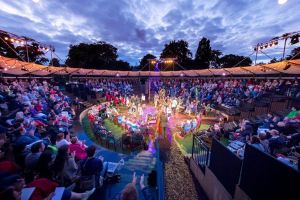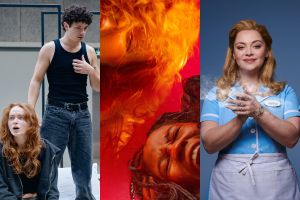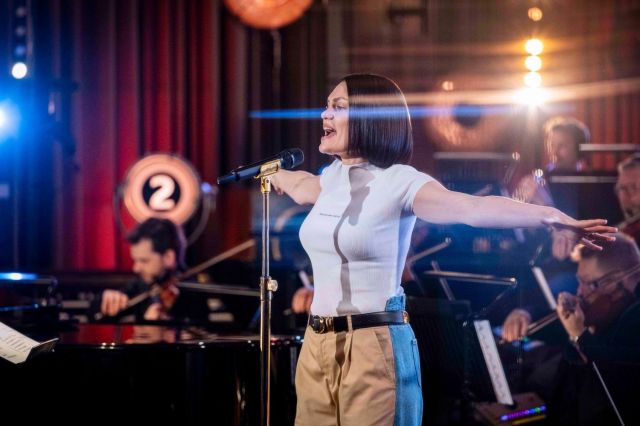Robert Icke: 'Classics were never meant to be boring'
The director of ”1984” and ”Oresteia” on why theatre needs to compete with ”The Sopranos”
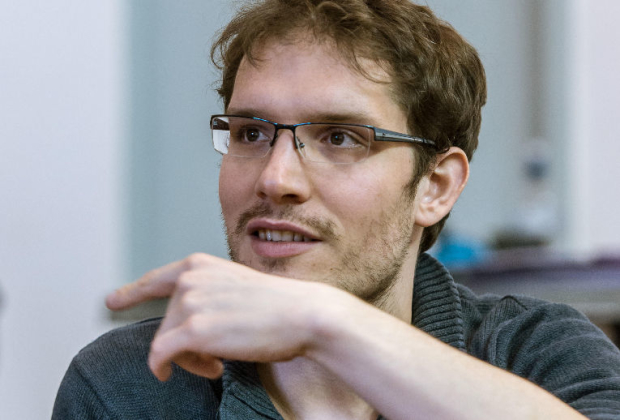
© Manuel Harlan
What was the origin of the Almeida Greeks season?
Rupert Goold and I had talked about doing a Greek season while at Headlong, as part of an ongoing conversation about how everybody does Shakespeare, but there are elements of the repertoire that are less revisited. It's now accepted that if you do a Shakespeare you're allowed to play with the text and move things around, whereas with many other classics we're more hidebound about how we do them. When we went to the Almeida we were looking at how to start off our artistic programme, and the Greek plays came up again because they're a great point of origin.
Why did you choose to tackle Oresteia?
It's a funny thing with plays, it's like falling in love – you can't quite remember when it happened but it was always going to be that one. For me it was always going to be Oresteia. I can rationalise this by saying it's the only complete trilogy and I'm really interested in long evenings in the age of the box set. But I suppose really it's because I read the trilogy at university and always felt a relationship with it.
Unusually for Greek tragedy, I found it very relatable and moving – I'm guessing that was your intention?
Like you, few of my favourite evenings at the theatre were spent at Greek tragedies. It too often felt like watching a dusty, distant cultural artefact. For me there's an arrogance in that approach. For example, the first act of Oresteia as we do it is not Aeschylus; in the original Iphigenia’s sacrifice is narrated by the chorus but it's not dramatised. There's a good reason for that, because in Aeschylus's day the audience would have brought with them an inherent knowledge of that story. But to assume that in the 21st century is ridiculous, and it means that everyone starts at a massive disadvantage… So to me the heart of the story hasn't changed, it's just working out how to make it beat.
Following 1984 it's the second time you've brought serious, high-brow drama to the West End
Is it high-brow? I'd imagine there's a lot of angry guardians of high culture who don't consider it high-brow. And that's fine by me, because I'd hate for it to be in the same category as something like opera. I love the idea that people could come not knowing anything about the story and still be able to receive it in all its complexity.
It's been said we live in the age of short attention spans, but yet there's clearly a hunger for epic experiences
I don't buy the short attention span argument; I think people who say that are usually advocating work that is plain boring. I think the challenge is that people have more options. For the price of a ticket to Oresteia they can buy the full box set of The Sopranos, and why shouldn't they? So we have to really make them an offer, we have to compete. We have to offer a live experience that is more electric and dangerous than one they could have in their living room… As a popular artform theatre is doing less well than it's done in any century. It's in danger of becoming refined, like opera, and that's the death knell. We need to make the argument for it as something that is urgent and important.
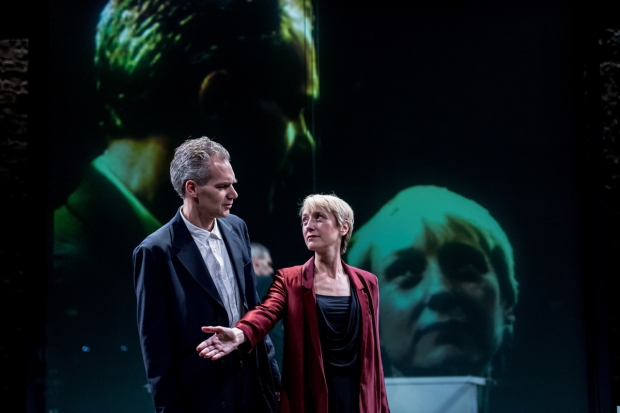
© Manuel Harlan
Speaking of epics, you recently staged a full-length reading of The Iliad – how was that experience?
It was an idea I had in the same vein as Mallory saying he wanted to conquer Everest – "because it's there". Rupert was really keen to do it and we'd never seen it done anywhere else. It felt very modern and yet absolutely faithful to Homer's original text. These works were never meant to be boring and 'high culture' – that's why they've survived for so long. It was great because lots of people could get involved in it and thanks to the live stream we were able to reach a much wider audience beyond the British Museum and Almeida. We're planning to put it out as a podcast in the coming weeks.
What can you tell us about forthcoming plans at the Almeida?
The Greeks season continues until November, with Rupert's final production Medea opening soon and the Dionysian festival ongoing – look out for a big announcement on that front. We're also about the unveil our new season, which includes another classic directed by me, in a new version that I'm writing… The Greeks season has shown there's a real hunger among our audience for re-examining the repertoire. We need to find the fertile new areas of soil to re-excavate.
Oresteia is booking at Trafalgar Studios until 7 November; 1984 is on tour from 9 September










